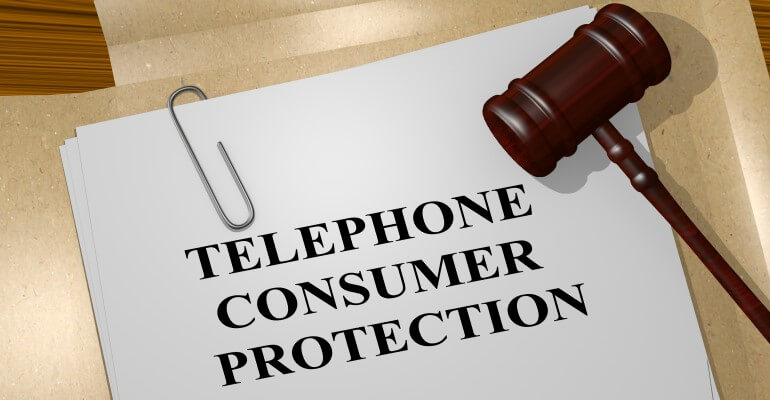
Does the TCPA Apply to Debt Collectors?
The Telephone Consumer Protection Act (TCPA) protects consumers across the United States. Telemarketers trying to sell services and products, from home security systems to insurance, must comply with the TCPA. Congress enacted the TCPA in 1991. The TCPA restricts the making of telemarketing calls and the use of automatic telephone dialing systems and artificial or prerecorded voice messages. Both telemarketers and debt collectors must comply with the TCPA. Often, however, they don’t. That’s where a consumer rights attorney comes in.
Many people ask, “Does TCPA apply to debt collectors?”
The short answer is YES.
TCPA & Debt Collectors
The TCPA regulates prerecorded calls, auto-dialed calls, telemarketing calls, text messages, and unsolicited faxes. Debt collection agencies/debtors don’t need permission, or consent, to call residential lines. This includes auto-dialed and prerecorded calls.
Cell phones are a different story. Debt collectors must have your consent to make collection calls to your cell phone using an automatic telephone dialing system (ATDS). These are the calls during which you hear a short pause on the line before the call connects.
The TCPA requires prior consent by either oral or written means. If the company and/or debt collector does not have your consent, the call is illegal. Many companies, including debt collectors, make these types of illegal calls to consumers because they get away with it — causing continual harm to people in Florida, and across the country.
TCPA Penalties for Violations
Violations of the TCPA are serious. Substantial fines exist for TCPA violations. These laws exist to deter companies from making these illegal calls. If you withdraw your consent to accept auto-dialed calls to your cell phone, and the calls continue, the company may be penalized up to $500 per call. If the call or calls are considered “willful,” then the penalty may reach as high as $1,500 per call.
These penalties aggregate quickly, particularly when debt collectors call repeatedly. Over time, companies who violate the TCPA may end up owing consumers thousands of dollars for their TCPA violative calls.
Holding Debt Collectors Accountable for TCPA Violations
Just like employee rights law, consumer protection law is complex. That is why it is important to contact a consumer rights attorney. Debt collectors are aggressive and persistent. Having the right lawyer on your side to work within the complicated law and justice system — and to stand up to harassing bullies — gives you the best ammunition to hold them accountable for breaking the law.
It’s also important to document as much as you can. Save voicemails, and keep a record of dates and times of calls. Also, note who made the calls and what you talked about (if you picked up). Retrieve records from incoming calls from your service provider and highlight all calls made from any of the debt collectors. Good records are extremely helpful, but not always required. For example, cell phone records are commonly subpoenaed in TCPA cases.
At Wenzel Fenton Cabassa, P.A., our attorneys will tackle TCPA violations aggressively with you, and your family, in mind. You have the right to legal protection. TCPA penalties are severe, and you may be entitled up to $1500 per call. Our law firm will be with you every step of the way to help you protect your privacy.
Contact Wenzel Fenton Cabassa P.A., today to set up a free, confidential consultation. We help consumers throughout the state of Florida to hold debt collectors accountable for unlawful and harassing actions.
Please Note: At the time this article was written, the information contained within it was current based on the prevailing law at the time. Laws and precedents are subject to change, so this information may not be up to date. Always speak with a law firm regarding any legal situation to get the most current information available.








